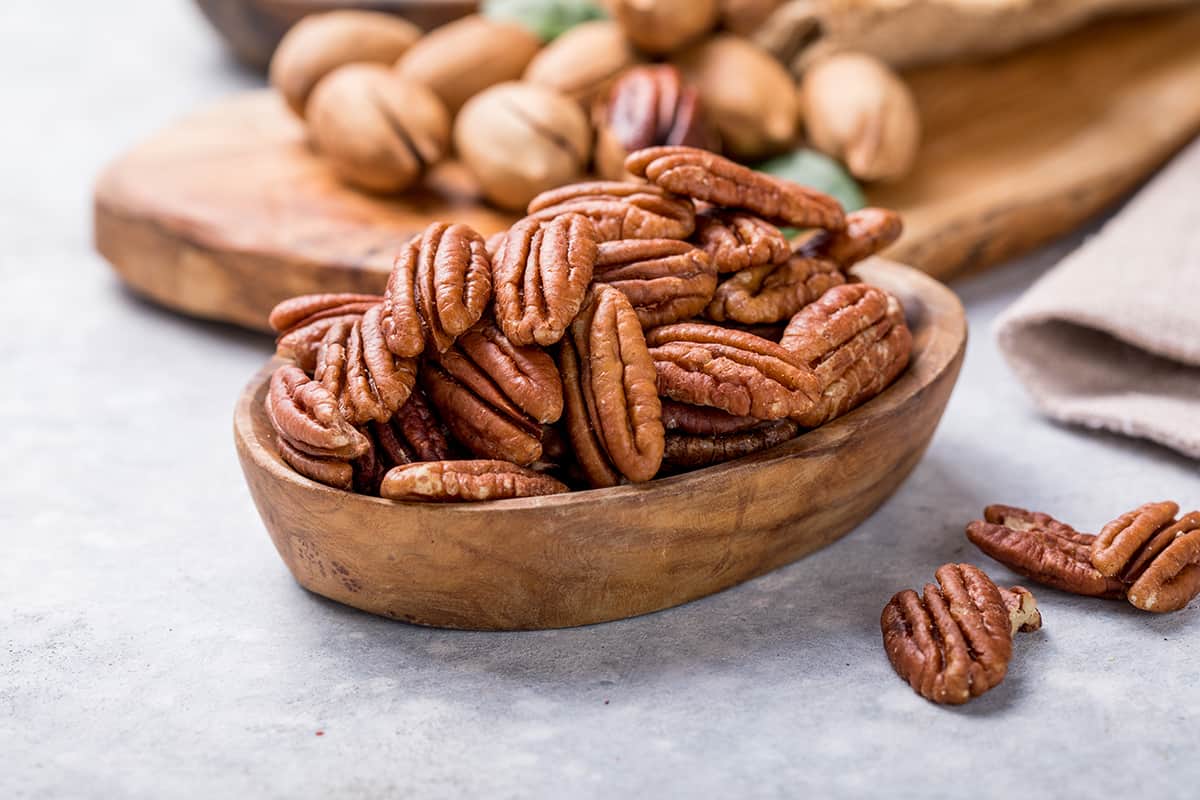

Articles
How Long Will Pecans Last In The Freezer
Modified: August 27, 2024
Discover how long pecans can last in the freezer in this informative article. Find out the best ways to store pecans to ensure freshness and flavor.
(Many of the links in this article redirect to a specific reviewed product. Your purchase of these products through affiliate links helps to generate commission for Storables.com, at no extra cost. Learn more)
Introduction
Pecans are delicious and versatile nuts that are widely used in various culinary dishes. Whether you’re baking pecan pies, adding them to salads, or just enjoying them as a healthy snack, it’s important to know how to properly store pecans to maintain their freshness and flavor.
One effective method of storage is freezing pecans. Freezing can help extend the shelf life and preserve the natural oils and flavors of pecans, allowing you to enjoy them for an extended period of time.
In this article, we will explore how long pecans can last when stored in the freezer, the factors that can affect their shelf life, signs of pecans going bad, tips to extend their freezer life, and how to thaw and use frozen pecans.
So, whether you have an abundance of pecans from your own tree or bought in bulk, read on to discover the best practices for maximizing the longevity of your pecan stash.
Key Takeaways:
- Properly frozen pecans can last up to 2 years in the freezer, maintaining their freshness and flavor for an extended period, making them a convenient and versatile ingredient for various dishes.
- To maximize the freezer life of pecans, use airtight containers, store in the coldest part of the freezer, and follow proper thawing techniques to ensure the best quality and flavor when using them in recipes.
Read more: How Long Will Flour Last In The Freezer
The Shelf Life of Pecans
Pecans have a relatively long shelf life compared to other nuts when stored properly. When kept in a cool, dry place such as a pantry or airtight container, pecans can remain fresh for up to 6 months.
However, if you want to extend their freshness even further, freezing pecans is a great option. When stored in the freezer, pecans can last for up to 2 years or even longer, depending on the quality of the nuts and how well they are packaged.
It’s important to note that the shelf life of pecans can vary depending on factors such as the quality of the nuts, the storage conditions, and whether they are shelled or unshelled. Shelled pecans generally have a shorter shelf life than unshelled pecans due to the increased exposure to oxygen.
Additionally, roasted pecans or those that have been seasoned with spices may have a slightly shorter shelf life compared to raw pecans due to the added moisture content. It’s always a good idea to check the packaging or consult the supplier for specific shelf life information.
To ensure the best quality and flavor, it’s recommended to consume pecans within their optimum freshness period. If you notice any signs of spoilage or deterioration, it’s best to discard them rather than risking the quality of your dishes.
Now that we’ve discussed the general shelf life of pecans, let’s delve into the proper storage methods when it comes to freezing pecans.
Storing Pecans in the Freezer
Freezing pecans is a simple and effective way to preserve their freshness for an extended period of time. Follow these steps to properly store pecans in the freezer:
- Choose the right container: Use airtight containers or freezer-safe bags to prevent moisture and air from entering, which can lead to freezer burn and diminish the quality of the pecans. Make sure the containers are sturdy and seal tightly.
- Prepare the pecans: If your pecans are in the shell, crack them open and remove the nutmeat. For shelled pecans, ensure they are clean and free from any debris.
- Divide into portions: Consider dividing the pecans into smaller portions based on your usage. This way, you can thaw only the amount you need at a time, minimizing waste and ensuring consistent freshness.
- Label and date: It’s crucial to label each container with the date of freezing. This will help you keep track of their freshness and use them in a timely manner.
- Remove excess air: Before sealing the containers, squeeze out as much air as possible to prevent oxidation and freezer burn.
- Place in the freezer: Finally, place the sealed containers or bags of pecans in the coldest part of your freezer. The temperature should be set at 0°F (-18°C) or below. Avoid storing them near the freezer door, as the temperature can fluctuate when it’s opened frequently.
By following these steps, you can ensure that your pecans remain in optimal condition while frozen, allowing you to enjoy their fresh taste and texture whenever you need them.
Now let’s explore the factors that can affect the shelf life of pecans stored in the freezer.
Factors Affecting the Shelf Life of Pecans in the Freezer
The shelf life of pecans in the freezer can be influenced by several factors. Understanding these factors will help you take the necessary steps to maximize the longevity and quality of your frozen pecans:
- Quality of pecans: The initial quality of the pecans plays a significant role in determining how long they will stay fresh in the freezer. Make sure to use fresh, high-quality pecans that are free from any signs of spoilage or damage. It’s best to freeze them as soon as possible after purchase or harvest.
- Proper packaging: The type of packaging used to store the pecans can greatly affect their shelf life. As mentioned earlier, use airtight containers or freezer-safe bags to keep out moisture and air, which can lead to freezer burn. Ensure that the containers are sealed tightly to maintain freshness.
- Temperature fluctuations: Fluctuations in temperature within the freezer can negatively impact the shelf life of pecans. It’s important to maintain a constant temperature of 0°F (-18°C) or below to prevent the pecans from thawing and refreezing, which can affect their texture and quality.
- Exposure to light: Prolonged exposure to light can cause the pecans to undergo photochemical reactions, leading to changes in their flavor and quality. Store the pecans in a dark area of the freezer to minimize exposure to light.
- Storage duration: Although pecans can last for up to 2 years in the freezer, the longer they are stored, the more they are prone to degradation in quality and taste. It’s best to consume them within a year to ensure optimal freshness.
By considering these factors and taking the appropriate precautions, you can significantly extend the shelf life of pecans in the freezer, maintaining their flavor and texture for a longer period.
Now let’s explore the signs that indicate pecans may be going bad.
Pecans can last up to 2 years in the freezer if stored in an airtight container. Be sure to label with the date to keep track of their freshness.
Signs of Pecans Going Bad
While freezing pecans can help prolong their shelf life, it’s important to be aware of the signs that indicate they may be going bad. Here are some common signs to look out for:
- Rancid smell: One of the first indicators of pecans going bad is a rancid or sour smell. Fresh pecans have a sweet, nutty aroma, so if you detect an unpleasant or off-putting odor, it’s a sign that the pecans have started to spoil and should no longer be consumed.
- Discoloration: Pay attention to any changes in color. Fresh pecans should have a rich, golden-brown hue. If you notice any darkening or discoloration, especially in spots or patches, it may indicate mold or fungal growth, and the pecans should be discarded.
- Off taste: Fresh pecans have a delightful, buttery flavor. If you detect any bitterness, sourness, or a stale taste, it’s a clear indication that the pecans have gone bad and should not be eaten.
- Spoiled texture: When pecans go bad, their texture can change significantly. Look out for any signs of sliminess, stickiness, or a soft and mushy texture. Pecans should have a firm and crisp texture, and any deviation from that is a sign of spoilage.
- Weevils or pests: Pecans can be prone to infestation by insects, particularly weevils. If you notice any signs of small holes, webbing, or the presence of pests in your pecans, it’s best to discard them to avoid any health risks.
It’s important to note that consuming spoiled pecans can lead to foodborne illnesses and pose health risks. If you detect any of these signs, it’s best to err on the side of caution and discard the pecans.
Now that you know the signs of pecans going bad, let’s move on to some tips to help extend the freezer life of pecans.
Read more: How Long Will Sausage Last In The Freezer
Tips for Extending the Freezer Life of Pecans
To ensure the longest possible freezer life for your pecans and maintain their quality, follow these helpful tips:
- Properly package and seal: As mentioned earlier, using airtight containers or freezer-safe bags is crucial to protect pecans from moisture and air. Double-bagging or vacuum-sealing can provide extra protection against freezer burn.
- Keep them in a cool spot: When placing pecans in the freezer, make sure they are stored in the coldest area, away from the freezer door. This will help maintain a consistent temperature and minimize temperature fluctuations.
- Use smaller portions: Dividing pecans into smaller portions before freezing is a smart strategy. It allows you to thaw only the amount you need, reducing the chances of refreezing and deterioration in quality.
- Rotate your stock: To ensure you consume your pecans within their optimal freshness window, practice the “first in, first out” rule. Organize your freezer inventory so that the pecans that were frozen first are used first.
- Regularly inspect and discard: Periodically check your frozen pecans for any signs of spoilage, such as mold, off smells, or unusual textures. If you notice any of these signs, it’s best to discard the affected pecans to prevent contamination.
- Store in small batches: Instead of freezing a large quantity of pecans in one container, consider dividing them into smaller batches. This allows you to access only a portion each time, minimizing the exposure of the remaining pecans to warm air and potential degradation.
- Avoid frequent temperature fluctuations: Limit the number of times you open the freezer door to prevent temperature fluctuations. Every time the freezer door is opened, warm air enters, which can affect the quality and texture of the pecans.
By following these tips, you can maximize the freezer life of your pecans and ensure that they maintain their quality for longer periods, allowing you to enjoy fresh-tasting pecans whenever you need them.
Now that you’re equipped with knowledge on extending the freezer life of pecans, let’s move on to the process of thawing and using frozen pecans.
Thawing and Using Frozen Pecans
When it comes time to use your frozen pecans, it’s important to thaw them properly to preserve their quality and flavor. Here’s a step-by-step guide on thawing and using frozen pecans:
- Remove from the freezer: Take out the desired amount of frozen pecans from the freezer. It’s best to thaw only the portion you need to avoid refreezing any leftovers.
- Thaw at room temperature: Place the frozen pecans in a bowl or on a plate and leave them at room temperature to thaw. This process typically takes about 1-2 hours, depending on the quantity and size of the pecans.
- Speed up the thawing process (optional): If you’re in a hurry, you can speed up the thawing process by placing the frozen pecans in a sealed plastic bag and submerging them in cold water. This method can reduce the thawing time to approximately 30 minutes.
- Use in your favorite recipes: Once thawed, you can use the pecans in a variety of recipes. From baking pies and cookies to adding them to salads and granola, pecans bring a delightful crunch and nutty flavor to a wide range of dishes.
- Store leftovers properly: If you have any leftover thawed pecans, store them in an airtight container or freezer-safe bag and place them back in the freezer. However, keep in mind that the texture and flavor may slightly change after thawing, so it’s best to use them in recipes rather than consuming them as a standalone snack.
It’s important to note that once pecans are frozen, they may become slightly softer in texture compared to fresh pecans. However, they will still retain their nutty flavor and can be used effectively in various recipes.
With these steps in mind, you can confidently thaw your frozen pecans and incorporate them into your favorite dishes, adding a delicious touch of flavor and texture.
Let’s wrap up with a summary of what we’ve covered so far.
Conclusion
Pecans are a delightful and versatile nut that can elevate the flavor and texture of your meals. Freezing pecans is an excellent way to extend their shelf life and preserve their freshness for an extended period. By following the proper storage techniques and considering factors such as packaging, temperature, and storage duration, you can maintain the quality of your frozen pecans.
Recognizing the signs of pecans going bad, such as rancid smell, discoloration, off taste, and spoiled texture, is crucial to ensure the safety of your food. It’s important to regularly inspect your frozen pecans and discard any that show signs of spoilage.
To maximize the freezer life of pecans, follow the tips we’ve discussed, such as proper packaging, using smaller portions, keeping them in a cool spot, and avoiding temperature fluctuations. These practices will help preserve the freshness and flavor of your pecans for as long as possible.
Thawing frozen pecans should be done carefully to retain their quality. Whether you opt for thawing at room temperature or using the cold water method to speed up the process, ensure that the pecans are properly thawed before using them in your favorite recipes.
Remember to store any leftover thawed pecans in an airtight container or freezer-safe bag and place them back in the freezer if you don’t plan on using them immediately.
With these guidelines in mind, you can confidently enjoy the deliciousness of pecans throughout the year, even when they are out of season. So, stock up on fresh pecans, follow the proper freezing and storage techniques, and savor the nutty goodness whenever you desire!
Happy cooking and snacking!
Frequently Asked Questions about How Long Will Pecans Last In The Freezer
Was this page helpful?
At Storables.com, we guarantee accurate and reliable information. Our content, validated by Expert Board Contributors, is crafted following stringent Editorial Policies. We're committed to providing you with well-researched, expert-backed insights for all your informational needs.
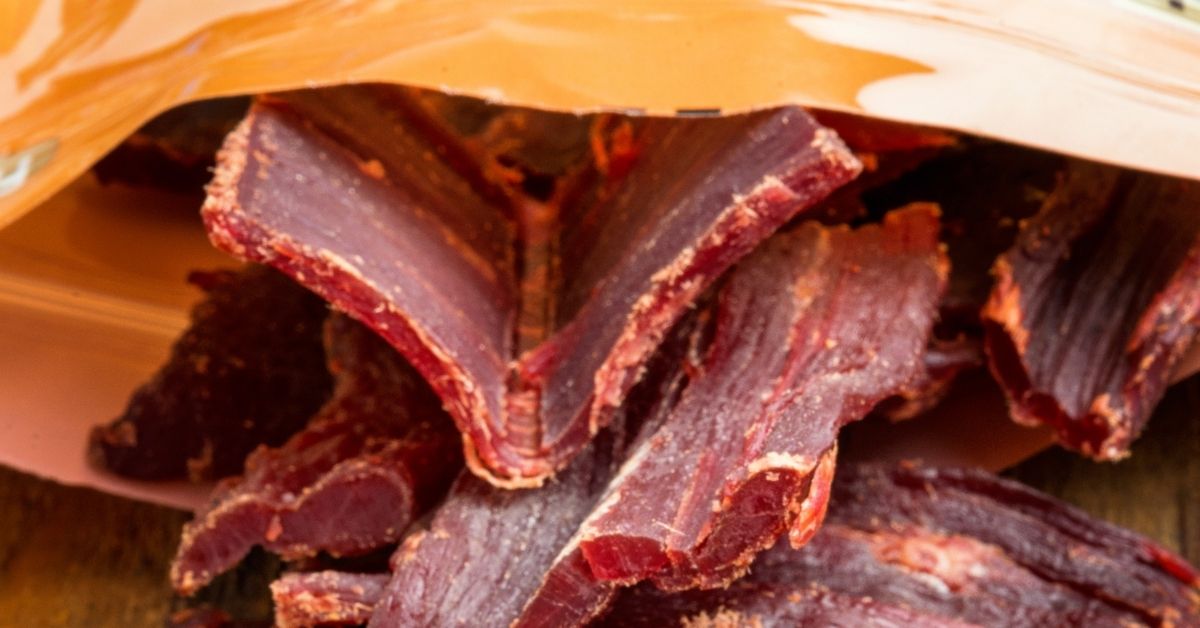
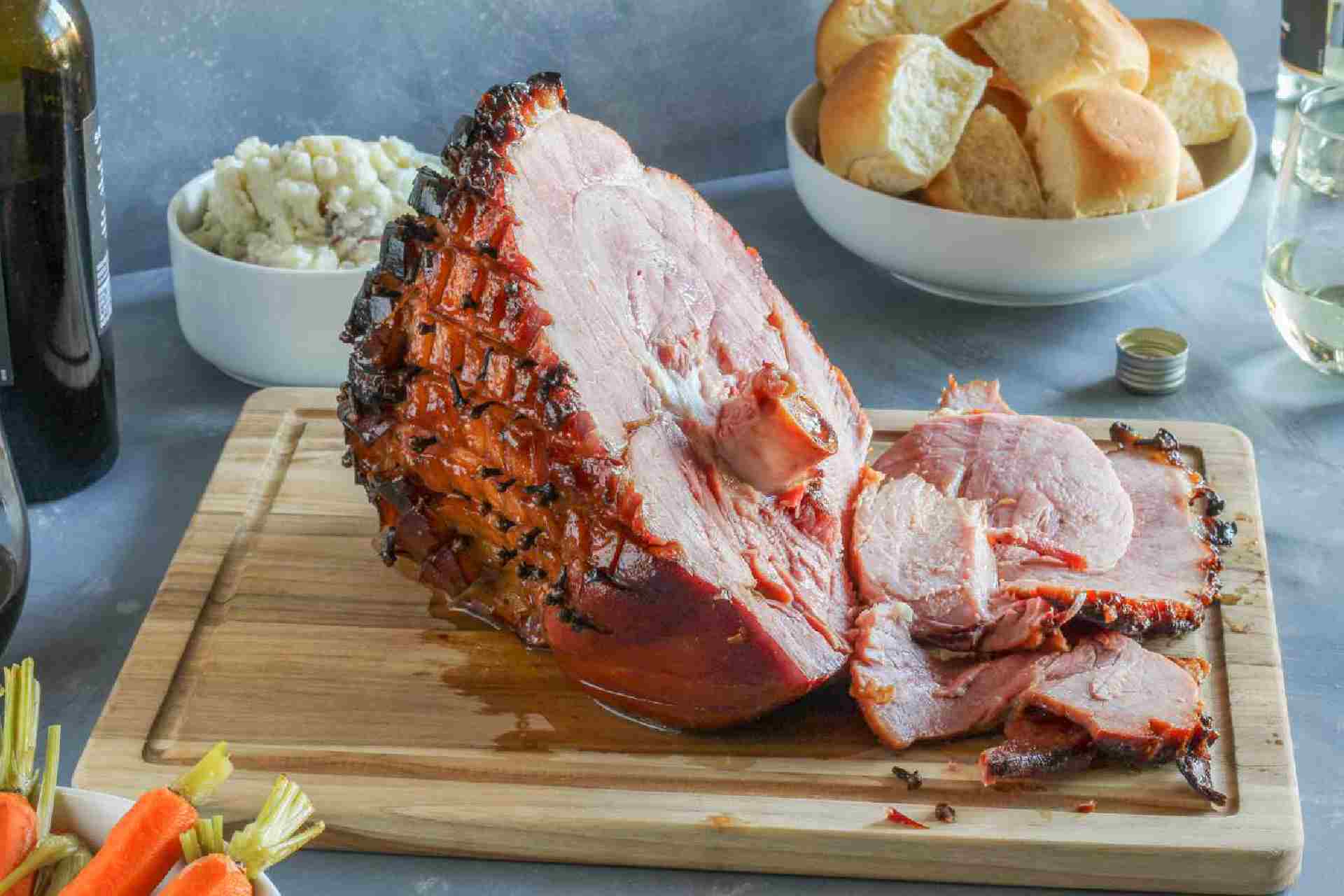
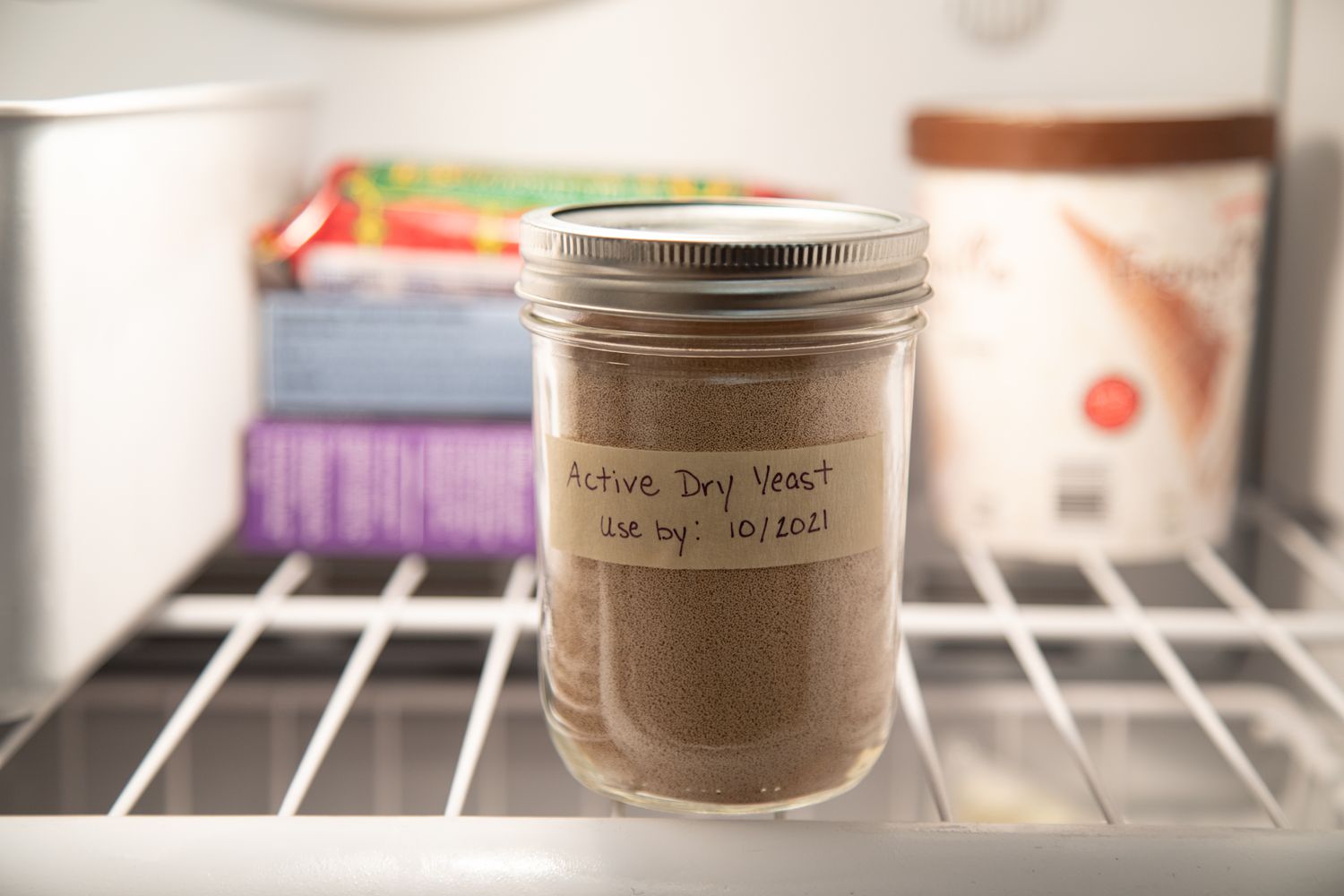
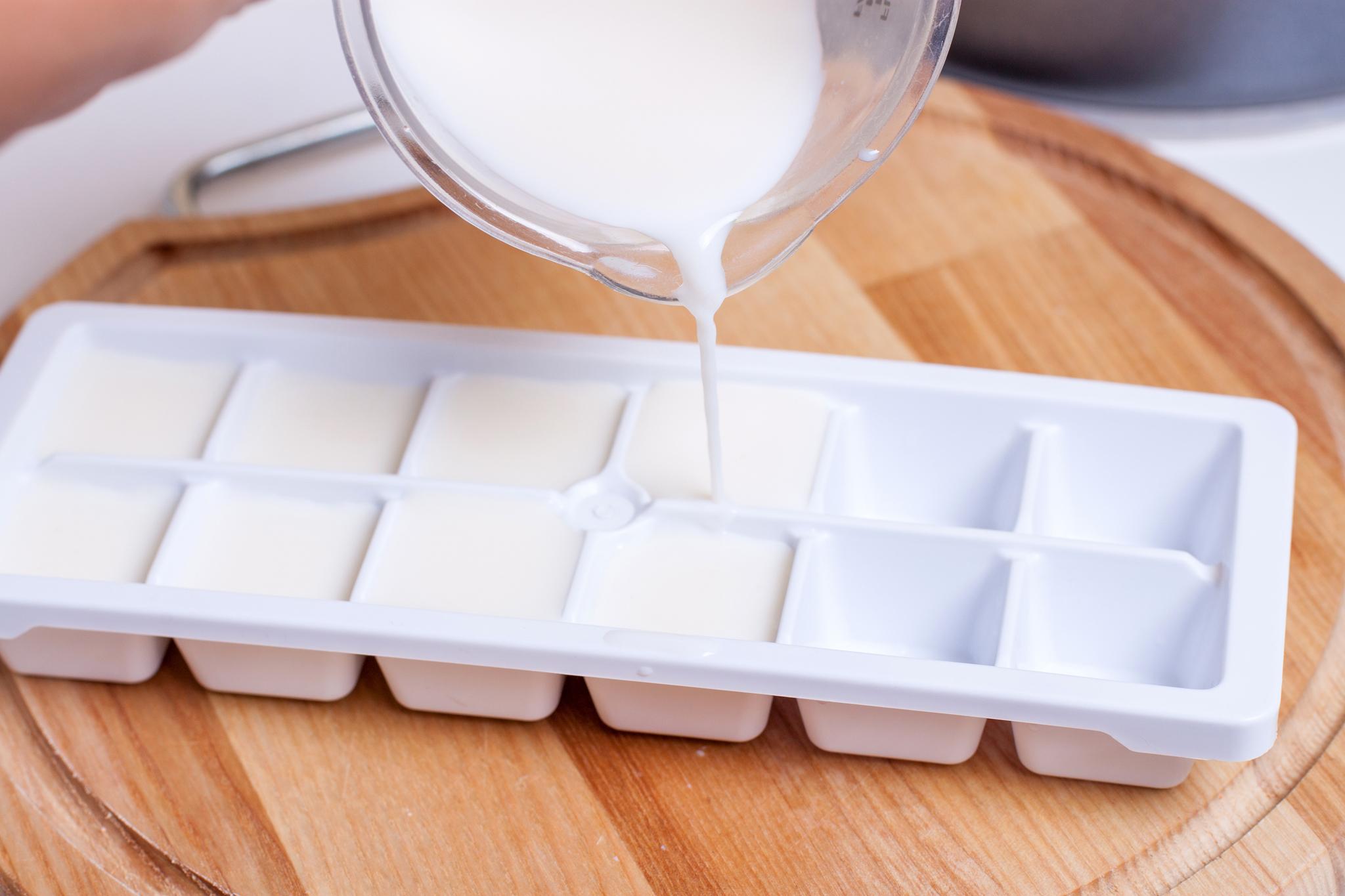
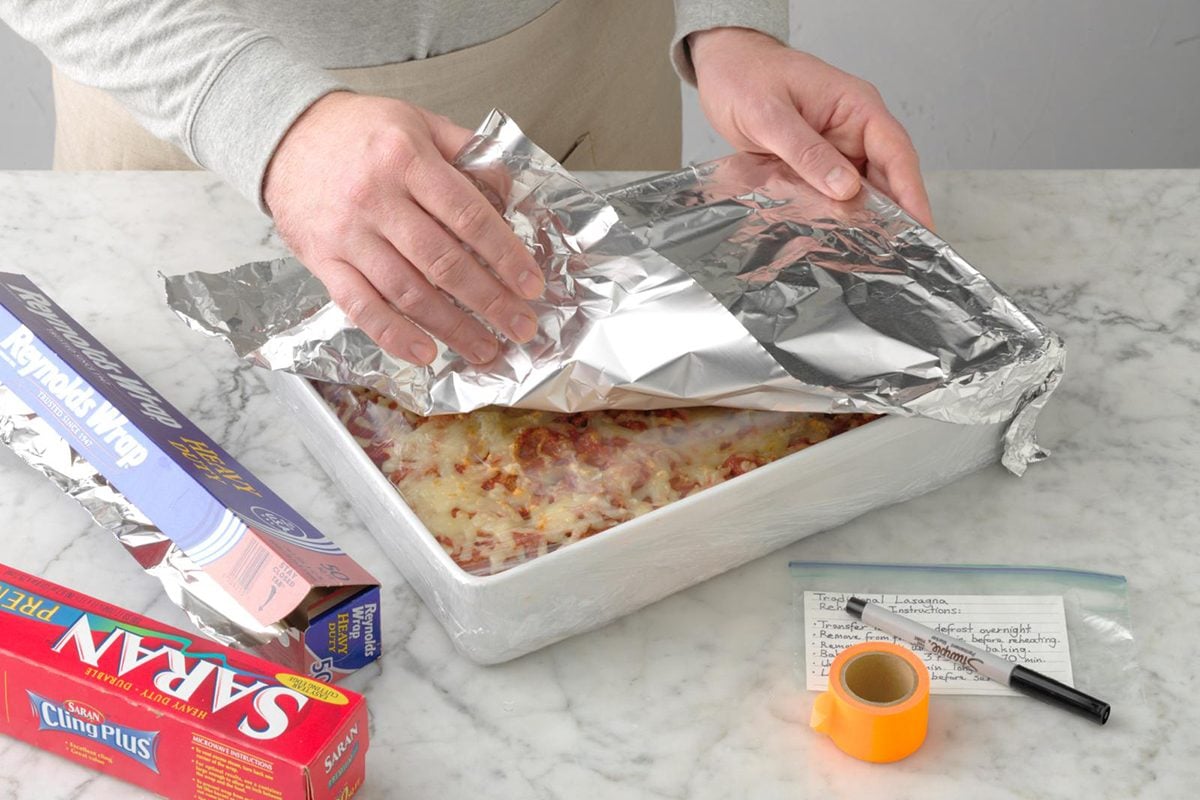

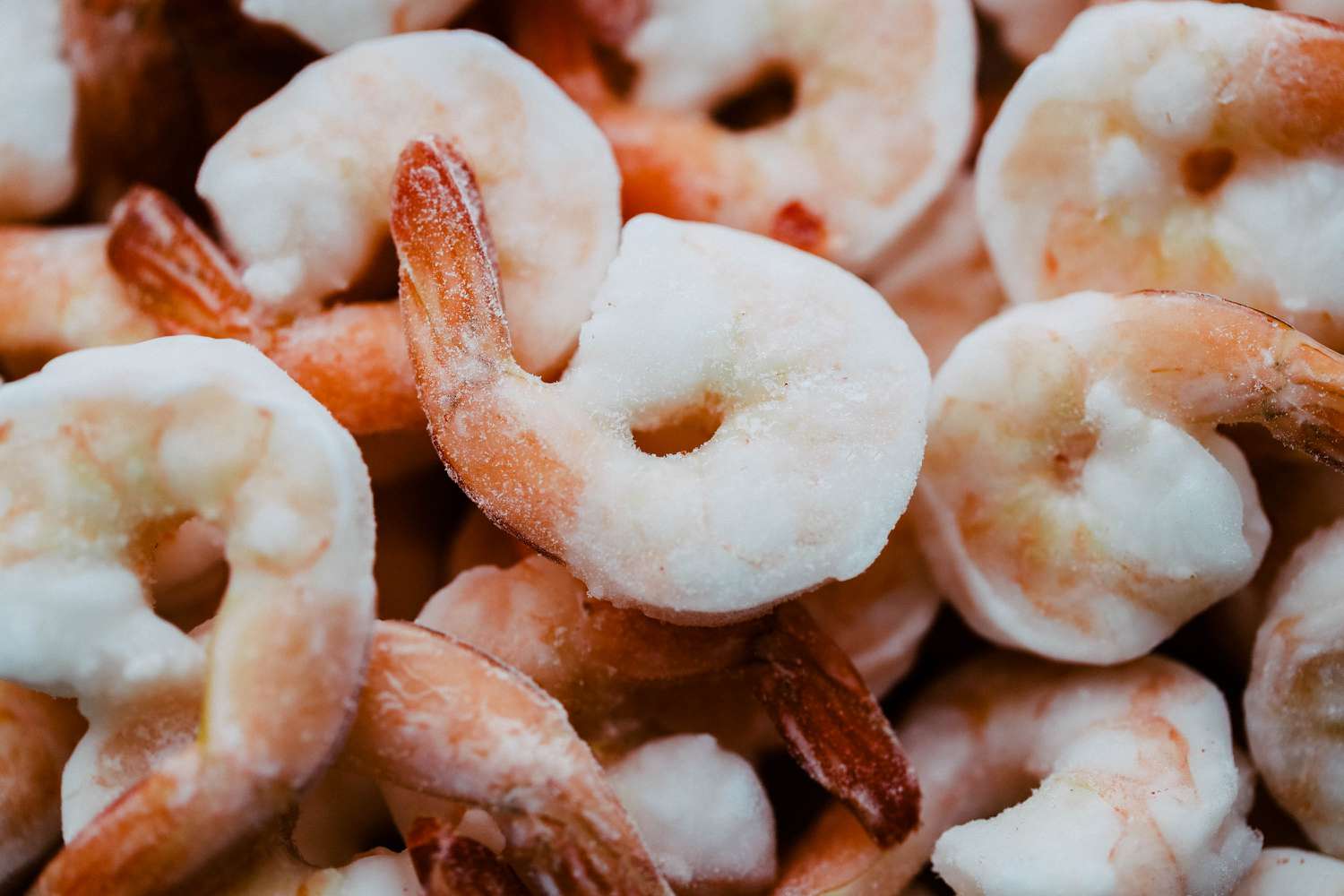
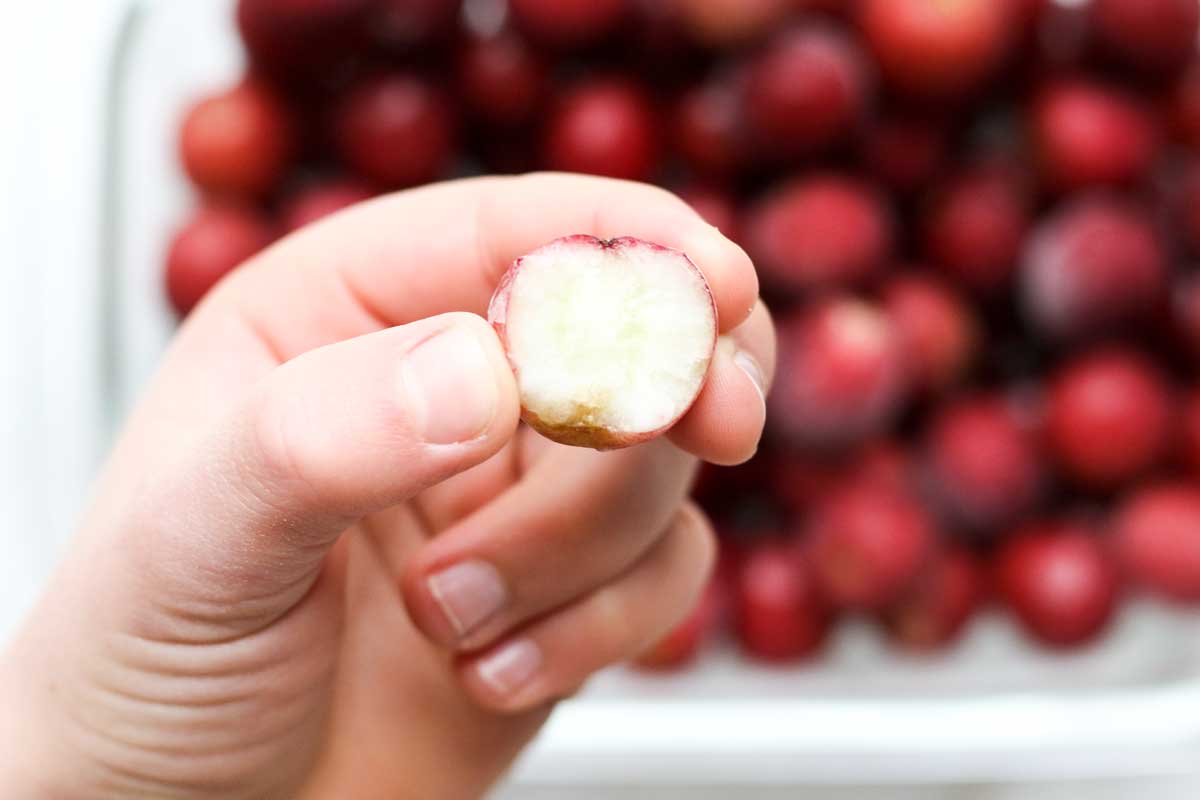




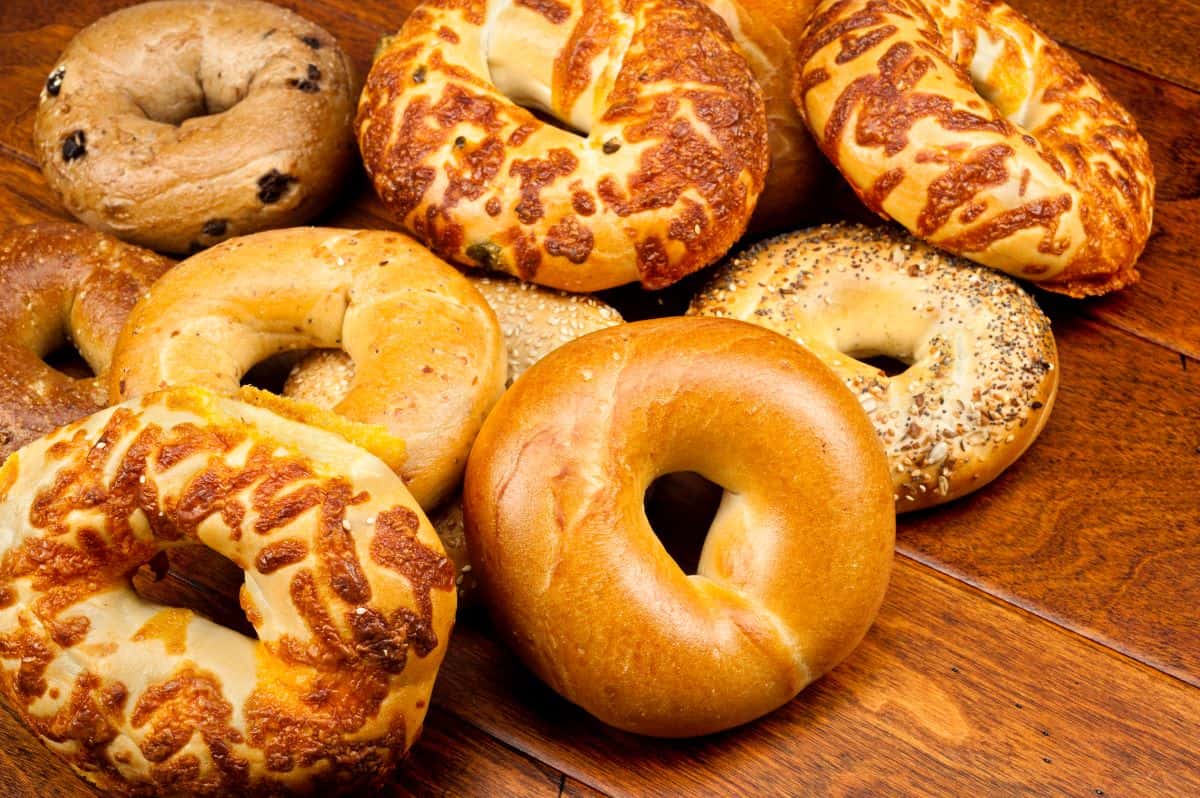


0 thoughts on “How Long Will Pecans Last In The Freezer”